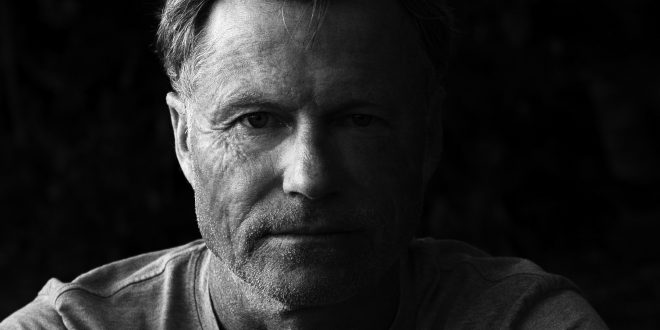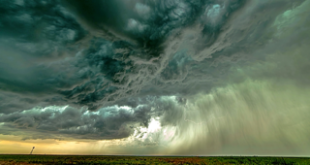video link:
I’d say on the literary side of things, John Steinbeck, particularly for this new book/album package, because of the agricultural/farming slant. Stephen King is great, too, as a somewhat guilty pleasure, and I incorporated a terror aspect into the story as kind of a tribute to him. As far as music goes, Bruce Springsteen is at the top of the list, and you can hear him in these songs woven through the book.2. What is your proudest moment as an artist?
When I first started combining songs and stories, I developed a project called For The Sender. People would send me letters, I’d write and record songs about those letters with friends (from bands like Nickel Creek, Switchfoot, and others), and then we’d kick proceeds back to causes chosen by the letter senders. We’d also surprise the letter senders with in-person performances of their songs. Seeing the impact of hearing these songs written just for them, in addition to supporting causes they chose, gave me so many proud moments… too many to single out just one.
3. Could you tell us about your creative process when it comes to writing both books and songs?
For me, the process is the same in each medium. I don’t sit down with a guitar intending to write a particular type of song… I let my hands go where they want, let my voice fall into whatever pockets it wants to, and then follow the thread. Same goes for writing books… I tend to write whatever comes from my fingers, almost stream of consciousness, until the story or chapter or sentence starts to take shape. Then I’ll go back and build it out, once I know what the muse wanted me to say. Songwriting has really informed my book writing, because it forces me to be concise and say as much as possible in as few words as possible.
4. What experiences from your life do you find help you resonate with our farmers’ plight?
Well, I eat. So do you. Somebody’s growing that food for us, struggling to make a living subject to seasonal changes and government regulation and so many factors out of their control. Those ‘somebody’s’ are farmers. It’s as simple as that.
5. Could you tell us about the inspiration behind “Ordinary Soil”?
I met a triple-board certified MD on a small island in Fiji, right at the beginning of the pandemic. No one really knew what was happening yet, so he explained to the small group what a coronavirus was and what to expect. The conversation turned to what he’d started focusing on, which was the root cause of chronic disease, and I realized this guy was no average bear. The ‘aha’ moment came when I looked him up later and saw a video he’d done about the history of mechanical and chemical farming. Not the sexiest of topics, but how the health of our soil relates to our own health really resonated with me. I felt like this was message that needs to be fictionalized, with the hope of reaching a wider audience through storytelling.
6. Did you face any difficulties writing “Ordinary Soil”? How do you usually overcome creative blocks?
A reader called this book ‘faction’… a marriage of fact and fiction. My challenge was to write a novel-length fictional story, which I’d never done, while researching time periods and scientific studies and cultural issues to make sure I was getting the facts right. I hadn’t done anything like that since high school, and even then, never on this level. My approach to overcoming creative blocks is to let the work rest, and revisit it later. That might be twenty minutes later, or two weeks. Forcing it never works for me.
7. What advice would you give to younger artists just starting off? What about to artists looking to branch into other creative mediums?
Luck matters. Which isn’t a bad thing. Knowing this actually relieves the burden of expectation, because it forces us to realize that our commercial or critical success, or lack thereof, isn’t always reflective of the quality of the work we’re doing, or even how hard we’re working. Any successful person with any amount of humility recognizes that success is not entirely self-determined. There are so many factors outside your control that move the needle.
That said, there is no substitute for mastering your craft. My time in the early days would’ve been much better spent working tirelessly on my playing, writing, and singing rather than trying to figure out how to break into the industry. Because…
And there are no shortcuts. When I was starting out, I focused more on the gatekeepers: music industry executives and radio programmers, for example. And I had some success getting their attention and approval… but that only amounted to a few handfuls of people, who in turn had to try to sell the idea of me to the people that really mattered: my unfound tribe. What I should’ve been doing is building my own platform to the point that I didn’t need those gatekeepers to succeed.
Along those lines, aligning yourself with successful people doesn’t guarantee success. As an example, I produced a musical project with platinum-selling, Grammy-winning artists, which came nowhere close to even a sliver of the success that any one of those artists had on their own. The project should’ve worked to catch fire on its own merits, rather than relying on famous people to sell it.
And finally, I wish I’d known that there really are no road maps. We tend to walk in the footsteps of our heroes, thinking that we’ll end up in the same place someday. But those heroes are also usually trailblazers… their journey was unique, even if the titles or awards or accolades in their particular ecosystem have common denominators. Every Grammy winner, for example, has a different story. You’re better off throwing away the map and using your heart as a compass. Your final destination might not be exactly what you envisioned, but it will be yours.
8. What can we expect next from you?
I’m already at work on the follow up to ‘Ordinary Soil’… and another album to go along with it.
 Music Existence Because of Music, We Exist
Music Existence Because of Music, We Exist




